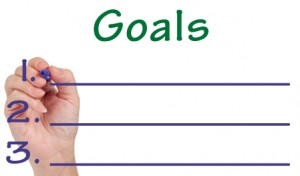He never said, “The Law of Attraction,” but when Earl Nightingale recorded “The Strangest Secret,” that’s what he was talking about. Throughout history, the phenomenon has been described in many ways, but they all mean the same thing: “We become (attract) what we think about.”
So if you think about money all the time, you should attract plenty of it, right? In theory. But in practice, when we think about money, we’re usually thinking about the fact that we don’t have enough, why we need it, and why it has eluded us. We’re not thinking about “more money” we’re thinking about the absence of more money and that’s exactly what we attract.
We attract what we think about. Think about wellness and you attract wellness. Think about illness (or, more properly, the absence of wellness), and you attract illness.
if this concept seems like “new age” folly to you, think about it in terms of what we know about the human brain.
Our subconscious mind cannot distinguish between reality and imagination. If you walk up to a closed door and hear the sound of a roaring lion on the other side of it, you will have a physiological response to that sound (fear, rapid heart rate, sweating, etc.) and you will hesitate to open that door. If you believe the lion is clawing his way through the door, your subconscious will inject adrenalin into your bloodstream and give you the urge to flee. It will direct more blood to your leg muscles to make that easier.
You will have the same response to the sound of the lion whether it is made by a real lion or a recording.
Your subconscious mind works to protect you and your perception of reality. Our nervous systems plays a role. In a previous post about “Why goal setting works,” I said that the Reticular Activating System (RAS) filters the stimuli around us, making us more aware of threats and opportunities.
If you think about getting more money, your subconscious, in conjunction with the RAS, helps you spot opportunities, wake up earlier, and remember to smile when you meet the right people. On the other hand, if think about your lack of money, your subconscious mind will guide you towards behavior that is consistent with that reality. You will find yourself missing opportunities, or sabotaging them.
What does this have to do with setting goals? Well, we are told that, “A goal without a deadline is just a dream,” so when we set goals, we are told to set a date for their accomplishment. The deadline starts the clock ticking and whenever we think about the goal, that ticking clock reminds us to get to work.
That sounds like the right idea, but in the context of the Law of Attraction (or it’s physiological equivalent), the impending deadline may actually cause us to attract the opposite of what we want.
Here’s what I mean.
Let’s say your goal is to earn an additional $50,000 in the next 12 months. If you believe that this is possible and you have the resources and plan to accomplish this, fine. But too often we set goals that are out of our reach and instead of rising to the occasion, we fail to accomplish them.
You start thinking about why your goal is difficult to achieve. You think about all of the things that could go wrong. You might think, “I don’t have enough time,” “I don’t really know what I’m doing,” or “I’m not going to be able to do this by myself.” You’re not thinking about reaching your goal, you’re thinking about not reaching your goal, and “not reaching it” is what you attract.
In setting my own goals over the years, I’ve found that “what” and “why” are more important than “how” and “when”. When I think about what I want and why I want it, it feels good. As long as I stay with that feeling, I move forward. When I think about how I’m going to accomplish my goal, or when, those good feelings often dissipate.
So, should we set our goals low enough that we’ll be assured of achieving them? No. It may feel good to accomplish them, but if the bar is too low you won’t be accomplishing much. The answer is to set goals that you really want, but not let yourself get caught up in their achievement. Today I focus more on what I want and less on how I’m going to get it. I don’t get hung up on deadlines. I trust that my subconscious mind will take me where I want to go and that I’ll get there at the right time.
I let my feelings guide me. If what I’m thinking feels good, I keep going. If it doesn’t, I change what I’m doing or I change my thoughts.
Some say this is God’s hand at work. Others stick with the physiological explanation. Some say the Law of Attraction is the answer. I don’t know how it works. I just know that when I listen to my instincts, I’m almost always guided in the right direction.
I still have goals. But I don’t let my goals get in the way of my dreams.
If your goal is to increase your income, get The Attorney Marketing Formula.











